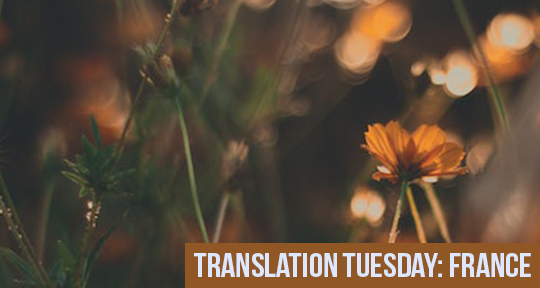In the roughly two decades since Víctor Rodríguez Núñez began writing the antinationalist salvo actas de medianoche and Katherine M. Hedeen began its translation, both have published numerous award-winning works and gained international recognition for their poetry and translations. But despite their acclaim and the widespread success of the poem in the Spanish-speaking world through various prizes and publications (Valladolid, Soria, La Habana), traditional English-language publishers resisted considering the poem and its defiance of preconceived notions of Cuban and Latin American poetry—until this April, when the book-length poem, midnight minutes, was published in full with Action Books.
Spanning over 2000 lines, midnight minutes challenges the formation of the traditional poem on the page and the formation of borders of all kinds. Rodríguez Núñez reinvents the sonnet as it curves between the rural towns of his life, from Cayama, Cuba, to Gambier, Ohio, where he lives together with Hedeen, embracing the night as homeland in “one long, dark breath.” Hailed as one of his most influential works in the Spanish-speaking world, actas de medianoche marked a new, experimental turn in both Rodríguez Núñez’s poetics and Latin American poetry overall, now extending into the English for the first time in full with midnight minutes.
I interviewed Hedeen and Rodríguez Núñez about the significance of the translation’s publication today, the contemporary long poem and sonnet in Spanish and in English, their influences from Cesár Vallejo to Pierre Joris’ translations of Paul Celan, and how Hedeen and Rodríguez Núñez transform the poetic subject and the object of desire.
The following dialogue has been edited for length and clarity.
Sarah Pazen (SP): You both have spoken about how, despite the impact of actas de medianoche in the Spanish-speaking world since its initial publication, presses in the United States were overwhelmingly resistant to publishing the English translation, midnight minutes. This was often because of how it defies preconceived ideas of Latin American, and specifically Cuban, poetry. Why do you think right now is finally when these translations are being published?
Víctor Rodríguez Núñez (VRN): Let’s talk a bit about why there was resistance. There is a problem with long poems. Many magazines don’t publish them. Each canto in midnight minutes has fourteen stanzas. The book has more than two thousand lines. And it’s not a book about any explicit Cuban-related theme. It’s not what somebody expects a Cuban poet to write about.
Borges, for instance, didn’t like Gabriela Mistral’s poetry. He didn’t like Federico García Lorca’s poetry. I am not in agreement with him in either case, but the reason why is compelling to me. He said that Gabriela Mistral was a professional Chilean. And he didn’t like Garcia Lorca’s poetry because he said that he was a professional Andalusian. “El andalus profesional, la chilena profesional.” I am not a professional Cuban.


